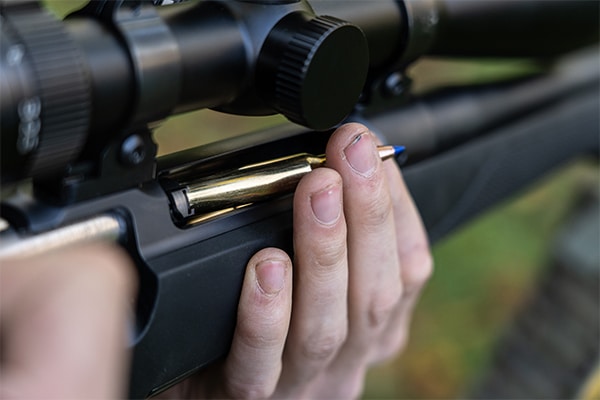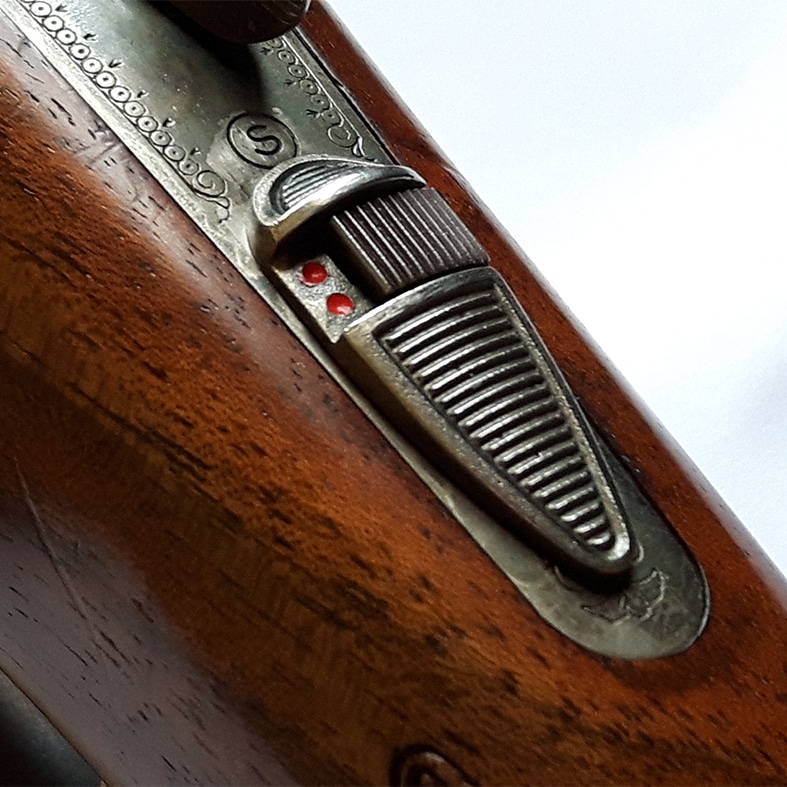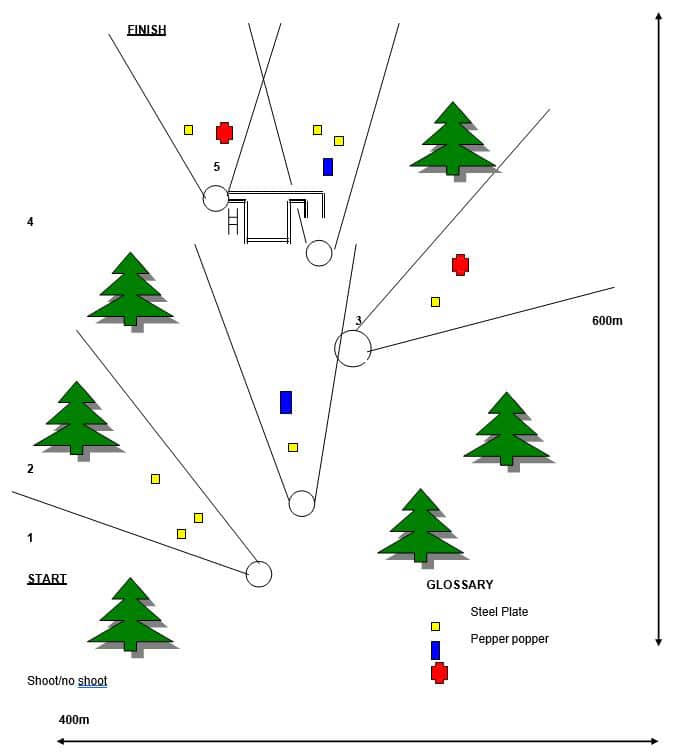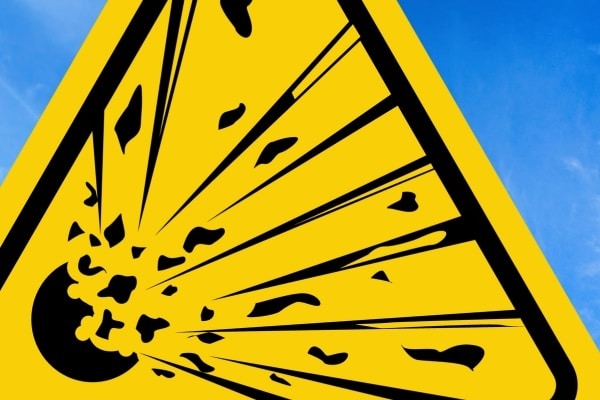
Rifles, Calibres and Land: Advice for Firearms Enquiry Officers
A broad overview of advice and guidance related to key terminology and designed to assist police firearms enquiry officers
Get information on the legal shooting season for mammals and birds in the UK.
Apply for funding for your project or make a donation today
Comprehensive information and advice from our specialist firearms team.
Everything you need to know about shotgun, rifle and airgun ammunition.
Find our up-to-date information, advice and links to government resources.
Everything you need to know on firearms law and licensing.
All the latest news and advice on general licences and how they affect you.


1.1 Practical Shotgun has a record of being an extremely safe sport operated under the auspices of the UKPSA is the governing body of the International Practical Shooting Confederation (IPSC) in the UK.
The UKPSA administers the sport, sanctions graded and championship competitions, selects the national teams, affiliates clubs, organises training and maintains discipline and ensures that IPSC’s rules are adhered to. IPSC consists of about 70 regions worldwide. It has been a regular occurrence in Great Britain since the early 1980s. It has had some offshoots, notably the British Western Shooting Society who use 18-20″ double barrelled shotguns in “End of Trail” competitions.
1.2 A normal course of fire will include steel plates, “shoot/no shoot” targets, ‘pepper poppers’ and occasionally paper targets. Most targets will be engaged from a range of five to 25 metres. Targets will be engaged from a variety of positions including prone, sitting, crouching/squatting, kneeling and standing. The idea is to engage the target(s) from different positions in the shortest possible time. This does involve movement although moving and firing at the same time (taking more than one pace) is forbidden. It is down to the individual skill of the shooter on how to approach the targets, which to engage, where and when, within the safety arcs.
1.3 Competitors will normally start either in a fully-loaded and chambered condition with the safety on or the firearm may be empty; it depends on the competition/course of fire.
1.4 Commonly, competitors will use self-loading or pump-action shotguns with magazines containing between seven and 14 rounds (Section 1 shotguns). Section 2 shotguns can be used but, because of the limited magazine capacity, they are at a disadvantage.
1.5 Occasionally, a competition will require the use of solid slug (Section 1). This will be used on either approved military ranges or one of the civilian ones approved by the relevant authority.
2.0 Paragraph 13.49 of “Firearms Law: Guidance to Police”, available on the internet states: http://police.homeoffice.gov.uk/news-and-publications/publication/operational-policing/HO-
“13.49 Pump-action, self-loading and other types of shotgun may be used for “practical” target shooting disciplines in which the shooter moves to engage a number of different targets. Solid slug ammunition may be authorised for this purpose on ranges suitable for the safe use of that class of ammunition and with adequate financial arrangements in place to meet any injury or damage claim. Applicants should normally be a member of a relevant organisation such as the United Kingdom Practical Shooting Association, either individually or as a member of an affiliated club. For “End of Trail” shooting, a set of practical disciplines with a “Wild West” theme, the British Western Shooting Society (BWSS) is the relevant organisation. In view of the potential hazards associated with the more extreme forms of practical shooting, the police will wish to consider with particular care applications for firearms for “practical” shooting that may fall beyond the examples cited above.”
2.1 Accordingly, applicants should be either individual full members of UKPSA or a member of a club affiliated to UKPSA. Note: New clubs cannot get affiliation unless they have ten individual members of UKPSA of whom at least two must have successfully completed a UKPSA basic safety course.
2.2 Individual membership of UKPSA in itself means nothing other than insurance However, a number of competitors are not members of affiliated clubs but attend competitions/shoots on a regular basis under individual membership. To take part in UKPSA sanctioned shotgun competitions competitors must have successfully completed a basic safety course. This is not a requirement for normal club level shooting although members will be expected to complete the course at some stage in their membership.
3.1 The Practical Shot Gun (PSG) basic safety course is run over two days (14 hours) and involves safety; weapon type and use; ammunition type and use; and courses of fire. It is a basic course but does give a good grounding on all aspects of practical shotgun shooting, particularly safety. Training can also be given at club level by a UKPSA instructor over a period of time that equates to the basic course.
3.2 It is not necessary to complete this course in order that practical shot gun can be undertaken. However, it is an indicator of the standard of the shooter and is certified. It is a pass or fail course and is not ‘attendance only’. Successful students will have a certificate.
4.1 The following is the new condition contained in the guidance and on the recent HO circular:
1.1 Target Shooting – shotguns
The smooth-bore gun/solid slug shall be used for practical target shooting:
a) On ranges suitable for the safe use of that class of firearm and with adequate financial arrangements in place to meet any injury or damage claim, or
b) Over a course of fire approved by a qualified member of the UKPSA on land over which the holder has lawful authority to shoot.
Automatic condition for Section 1 Shotguns for clay pigeon shooting (once “good reason” for possession has been demonstrated)
The *calibre SMOOTH-BORE GUN may also be used for clay pigeon shooting.
4.2 Accordingly, courses of fire must be “approved by a qualified member of the UKPSA”. In the absence of any further guidance, it should be adequate to have completed the basic PSG course before setting up and ‘approving’ a course of fire or for those present to replicate a course of fire approved previously or taken from a UKPSA approved event or source. In the case of the latter, the course must be sourced ie. where was it used and when.
4.3 This is contrary to UKPSA advice in that the UKPSA does not have qualifications in courses of fire, and they say that individual members of the UKPSA qualify as approvers. However, as individual membership of UKPSA requires no specific qualifications at all, it is felt that this (4.2) is the best course of action and policy.
4.4 Note: There are very few ranges in the UK approved by the military to use shotguns on, although a few are approved for Normal PSG courses of fire take place in streambeds or woods with the targets interspersed throughout within the safety arcs. Generally, any land that complies with the rules for other forms of shot gunning (eg clays) should also be safe for PSG ie CPSA state 275 metres within the arcs of shooting. See diagram at Annexe A.
5.1 Section 1 ammunition may only be used on ranges for which a range safety certificate has been granted or adequate third part insurance as per the new approval of ranges has been A small number of military ranges are approved as have a few civilian ones, notably:
NRA Bisley Shield in Dorset Carlisle
Oundle Mattersley
5.2 With the changes in range approval, there will undoubtedly be more civilian ranges approved for slug.
5.3 Providing the usual criteria is met 250 rounds to acquire and 300 to keep should be Note: graded matches may require 56+ rounds to shoot and an increasing number of solid slug-only matches are run.
5.4 The minimum calibre for graders is 20 However, the majority of shooters use 12 bore.
5.5 Applicants for solid slug ammunition will normally have completed the basic safety course. UKPSA states that there is no reason once starting to use solid slug that the ammunition amounts at 5.2 above should not be allowed. Some police forces are concerned at this number of slug ammunitions to start off with, bearing in mind its energy at longer ranges. Accordingly, consideration may be given to granting novice shooters of slug 60 rounds to possess and 50 to acquire with a review after a period of time.
5.6 It should be noted, some ‘slug only’ events are organised, particularly by the Met Police Blue Team (a Police PSG Team) and at the Phoenix event. Both of the above are held at Bisley. Carlisle and Shield have also conducted ‘slug only’ competitions.
6.1 The Range Officers Association, based at Thetford training area in Norfolk (STANTA, Stanford Training Area), also conducts practical shooting courses and disciplines. Norfolk Police have agreed that their training regime is adequate for practical shotgun (PSG) in STANTA (Stanford Training Area in Thetford, Norfolk).
6.2 The London Practical Shooting Club (Peter SARONY), have been an established practical shooting club for some The Metropolitan Police consider their training to be commensurate with the UKPSA.
Essex Police: http://www.essex.police.uk/services/s_fa_01.php
UKPSA: http://www.ukpsa.co.uk
Home Office: http://police.homeoffice.gov.uk/operational-policing/firearms.html
8.1 This policy request has been audited for human rights under current firearms law and complies with Article 1, Protocol 1, Right to Enjoy One’s Possession Article 5, The Right to Liberty, Article 8, Right to Respect for Private and Family Life, and Article 9, Freedom of Thought, Conscience and Religion.
9.1 To summarise, the following would be required to satisfy the ‘good reason’ criteria for practical shotgun:
10.1 This overview and policy on practical shotgun has been discussed and agreed with the UKPSA, apart from paragraph 4.3 (wording of condition) and 5.5 (regarding initial ammunition holdings) above.
With regard to the latter (initial ammo holdings), each case should be taken on its own merits and current full bore shooters used to using large calibre ammunition on ranges may be considered for higher initial ammunition quantities.
M Fidgeon
Firearms Office Manager
Essex Police
Note: This is ‘shot’ only; slug is only used on authorised ranges

Background
In UKPSA controlled events and practices, participants will undertake the course of fire in a logical order, going from position 1 to position 2 etc. No firing on the move but reloads and ‘top-ups’ (of the magazine) may be allowed. The RO (Range Officer) or a marshal will accompany the shooter, check for safety and score accordingly.
Got a question? Email us on firearms@basc.org.uk or call 01244 573 010.
© BASC July 2023

A broad overview of advice and guidance related to key terminology and designed to assist police firearms enquiry officers

Succinct advice on the law surrounding the storage of civil explosives in the UK, including requirements for record-keeping.

Explaining the legalities around shooting and rights of way in Scotland, including accessing shooting land and advice for landowners.
Sign up to our weekly newsletter and get all the latest updates straight to your inbox.
© 2025 British Association for Shooting and Conservation. Registered Office: Marford Mill, Rossett, Wrexham, LL12 0HL – Registered Society No: 28488R. BASC is a trading name of the British Association for Shooting and Conservation Limited which is authorised and regulated by the Financial Conduct Authority (FCA) under firm reference number 311937.
BASC Direct Ltd is an Introducer Appointed Representative of Agria Pet Insurance Ltd who administer the insurance and is authorised and regulated by the Financial Conduct Authority, Financial Services Register Number 496160. Agria Pet Insurance is registered and incorporated in England and Wales with registered number 04258783. Registered office: First Floor, Blue Leanie, Walton Street, Aylesbury, Buckinghamshire, HP21 7QW. Agria insurance policies are underwritten by Agria Försäkring.
If you have any questions or complaints about your BASC membership insurance cover, please email us. More information about resolving complaints can be found on the FCA website or on the EU ODR platform.